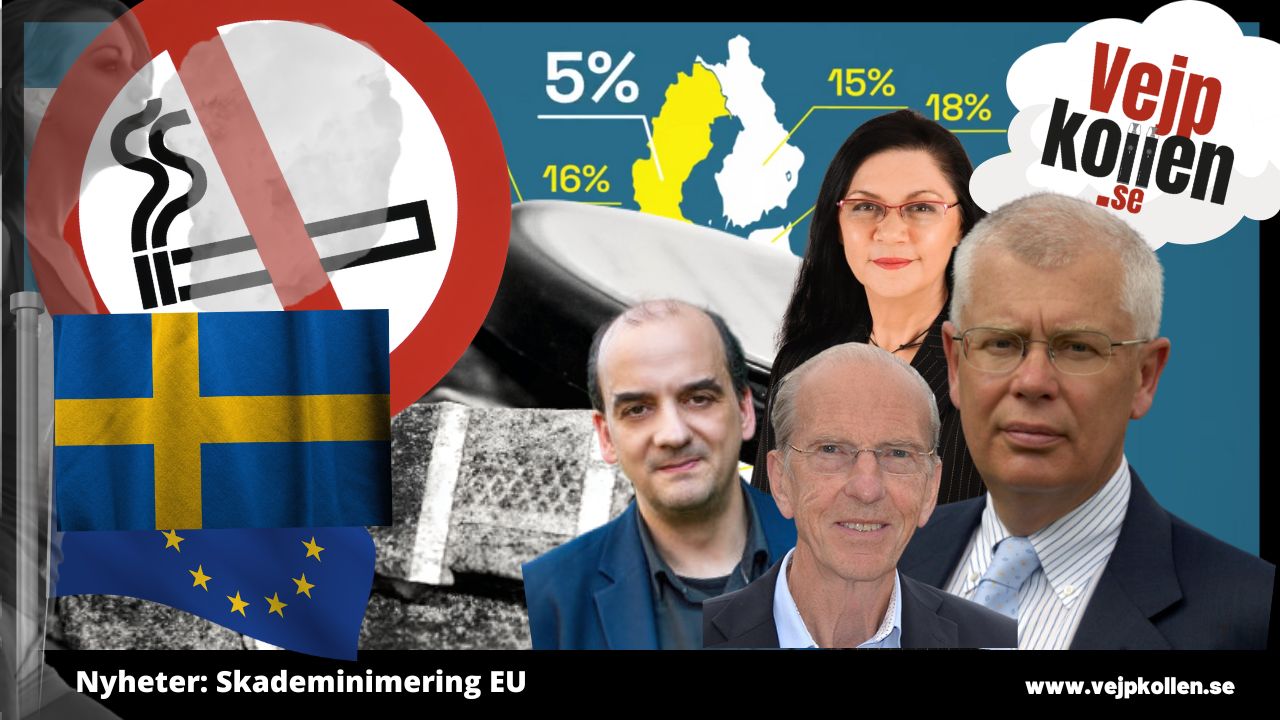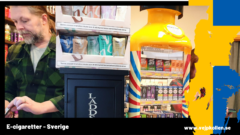"Sweden is 17 years ahead of the rest of Europe in terms of smoking rates. How did we get here?"
The organisation Smoke Free Sweden asks this question in a live seminar on harm minimisation and the Swedish model of snus, e-cigarettes and nicotine pouches.
Researchers and doctors from around the world will gather on Tuesday to discuss harm minimisation for smokers and how the use of smoking tobacco has been drastically reduced in Sweden over the last 20 years.
"With less than 5 per cent of the population smoking, Sweden is approaching the goal of becoming a smoke-free nation. This is 17 years ahead of other EU countries that want to reach the same goal by 2040," writes the report. organisation in a press release.
The key issue is alternative nicotine products - where Sweden is the only EU country to allow the sale of snus alongside e-cigarettes, nicotine pouches and analogue cigarettes. Snus was banned in the EU just before Sweden joined in 1995. Since joining, Sweden has a permanent derogation to sell snus.
Few smokers in Sweden - but many snus users
At present, 20 per cent of the male population and about 10 per cent of the female population use snus. Smoking among men is currently less than 5 per cent. In just 10 years, overall smoking in Sweden has decreased by 55 per cent. This is something for all health politicians in the EU to consider, says the organisation. Health diplomatswhich is behind Smoke Free Sweden.
"We believe we need to tell you about the advantages and disadvantages of the Swedish model. How has it worked to 'persuade' Swedish smokers to switch from cigarettes to less harmful nicotine products?" Says Anders Miltondoctor and spokesperson for Smoke Free Sweden at the launch of the seminar.
Provide information on relative risks
Anders Milton is holding, together with nicotine researcher Karl Fagergström, New Zealand addiction researcher Marewa Gloverand the doctor and weather expert Konstantinos Farsalinos, presentations during the day. The aim of the seminar is to encourage authorities across Europe to learn about and communicate to smokers the relative risks of nicotine use.
"Authorities should be clear and inform consumers who do not want to stop using or need their nicotine about the alternatives to cigarettes. And encourage them to switch." says Anders Milton.
In conjunction with the seminar, the organisation Health Diplomats is also releasing the report "A smoke-free Sweden - a roadmap to eradicate cigarettes".





At last, some heavy hitters taking the lead!
We may have been fooled by the authorities who insist that the low smoking rate in Sweden is linked to paternity leave. Who knows?
Is it the same in car accidents? Are the reduced numbers of serious injuries and deaths not due to damage-minimising cars with seat belts and lots of airbags and crumple zones, but simply because Sweden has generous paternity leave?
Strange that harm minimisation is viewed so differently depending on the area.
In the alcohol sector, there has been a deliberate and successful campaign since the 1970s to shift Swedish alcohol consumption from hard liquor to weaker alternatives.
In traffic, we have already gone through how to work on it inside the car, but everything in traffic such as pedestrian crossings, speed limits, bicycle helmets, traffic lights, pedestrian and bicycle lanes, etc. are all harm minimisation measures.
On the lake, we should wear life jackets and on the ice, ice studs, which is damage minimisation.
Buildings are constructed according to Swedish building standards and fixed electrical and plumbing installations may only be carried out by authorised personnel, which is damage minimisation.
We do not sell dangerous medicines without a prescription, and are restrictive about prescribing antibiotics for harm minimisation reasons.
Exactly EVERYTHING in our society works because of harm minimisation and yet our politicians say that when it comes to tobacco, harm minimisation is absolutely not a viable option.
Judge for yourself but I think we are being duped.
Yes, the best thing would be if vaping was not discouraged here in Sweden and more alternative products such as snus could be sold and imported in the rest of the EU, although I personally believe that various forms of e-cigs, both regular and "heat-not-burn", those with tobacco attract significantly more smokers to switch. After all, Sweden has a 200-year history of snus use. Then I am personally also completely against the paternalistic idea of trying to force people to live healthier or just behave in a way that some people in power find desirable.
People have a great responsibility for their life and health, but many do not realise this.